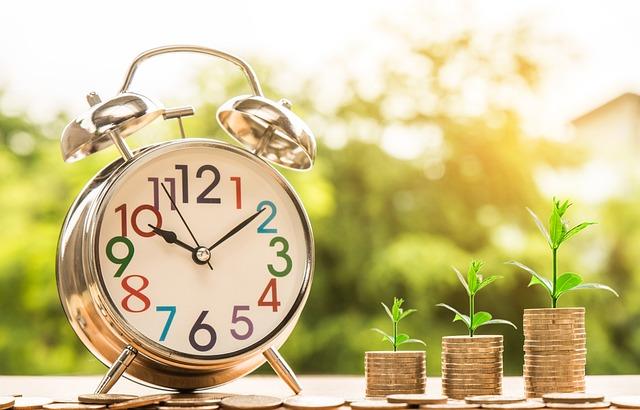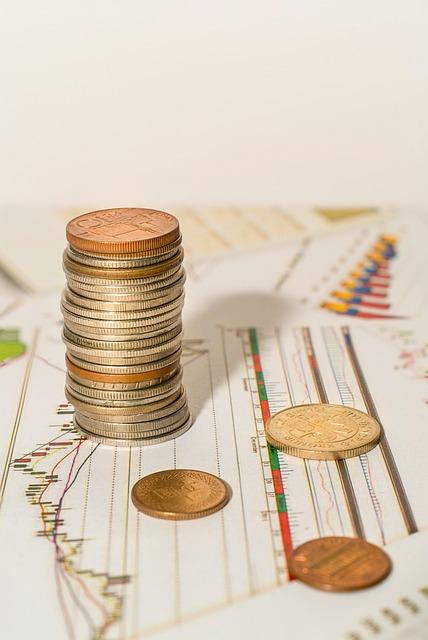Hey there! If the word “economy” makes your brain do a happy dance of confusion,you’re definately not alone. Whether it’s chatter about inflation,GDP,or why your coffee costs more these days,economics can feel like a foreign language.But hear’s the good news: you don’t need a finance degree to understand the basics. In this post, we’re breaking down Economy 101—simple, no-jargon explanations for total newbies who just want to get it. So grab a snack, settle in, and let’s make sense of the money stuff that shapes our world every day!
Understanding the Money Flow: How Cash Moves Around the Economy
Imagine the economy as a giant river, wiht cash being the water that constantly flows through different channels. Money starts with individuals who earn wages or profits, which they then spend on goods and services. Businesses receive this cash inflow and use it to pay employees, invest in new projects, or pay suppliers. This continuous cycle keeps the economic waters moving, ensuring everyone gets their share downstream. Every transaction, big or small, plays a role in the overall flow, helping the economy stay alive and kicking!
To break it down even further, here’s a swift glance at key cash flow paths:
- Households → Businesses: Buying products or services.
- Businesses → households: Paying wages and dividends.
- Households & Businesses → Government: Paying taxes.
- Government → Households & Businesses: Providing services and subsidies.
| entity | Role in Money Flow |
|---|---|
| Households | Earn, spend, save, and pay taxes |
| Businesses | Produce goods/services and pay wages |
| Government | Collect taxes and redistribute funds |
| Financial Institutions | Facilitate lending, borrowing, and investments |

Breaking Down supply and demand Without the Jargon
Imagine your favorite coffee shop suddenly gets flooded with customers craving their special brew.The shop has only so many cups a day, so what happens? They might raise prices or run out of coffee for some folks. This simple scenario is a real-life example of supply and demand at work. Supply is how much of somthing is available—like the number of coffees ready to go. Demand is how many people want it. When demand outpaces supply, prices often rise. When supply is higher than demand, prices tend to drop.
Here’s a quick way to remember it:
- High demand + low supply = prices go up
- Low demand + high supply = prices go down
- Balance = steady prices
| Scenario | Supply | Demand | Price Trend |
|---|---|---|---|
| Limited concert tickets | Low | High | ↑ Goes up |
| Seasonal fruit in summer | High | Moderate | ↓ Goes down |
| Basic everyday items | Steady | Steady | → Stays stable |

Why Inflation Happens and What It Means for Your Wallet
At its core, inflation happens when there’s more money floating around than there are goods and services to buy.Imagine everyone suddenly gets an extra paycheck, but the number of items on store shelves doesn’t increase—prices naturally creep up because sellers know people have more cash to spend. This can also be triggered by rising production costs or supply chain hiccups, which force businesses to charge more just to keep up. Simply put, inflation means your money buys less than before.
Here’s what it means for your wallet in everyday life:
- Groceries cost more: That weekly shopping trip feels heavier on your budget.
- Savings lose value: Money saved in the past might not stretch as far today.
- Higher interest rates: Borrowing becomes pricier, impacting loans and credit cards.
| Year | Average inflation Rate | Effect on $100 |
|---|---|---|
| 2010 | 1.6% | $98.40 value |
| 2020 | 1.2% | $98.80 value |
| 2023 | 6.5% | $93.50 value |
Simple Tricks to Spot Economic trends Like a Pro
Getting a feel for where the economy is headed doesn’t require a crystal ball—just a few savvy habits. first off, keep an eye on key indicators like unemployment rates, inflation, and consumer confidence. These stats might sound boring,but they act like early warning signs for shifts in the market. Another nifty trick is to watch the news for major announcements from central banks or government policies that could shake things up. And don’t underestimate the power of everyday chatter! When small businesses start cutting back or consumers get stingy with spending,it’s a sign things might be changing beneath the surface.
to make it simpler, here’s a quick checklist to keep handy:
- Interest rates: Rising rates can cool down borrowing and spending.
- Stock market trends: Sudden dips (or rises) often predict economic turns.
- commodity prices: Things like oil and food prices can influence the bigger picture.
- Housing market: Buying slowdowns can hint at tightening wallets.
| Indicator | What It Means |
|---|---|
| Inflation Rate | Prices going up, money worth less |
| Unemployment | More people without jobs = economy cooling |
| Consumer Confidence | How optimistic shoppers feel |
Smart Spending and Saving Tips to Make the Economy Work for You
Mastering your money isn’t about deprivation—it’s about making choices that *work* for you.Start by tracking your expenses so you can spot sneaky spending habits. Want an easy win? Prioritize needs over wants and challenge yourself with the 24-hour rule: before splurging on that cool gadget, wait a day. Often, you’ll find the impulse fades! Another trick? Automate your savings—set up a system where a fixed amount moves to your savings account right after payday. It’s like paying yourself first, without even thinking about it.
Here’s a quick rundown of simple habits that can boost your financial game:
- Budget smart: Use apps or a basic spreadsheet to keep tabs on income vs expenses.
- Cut recurring costs: Audit subscriptions and cancel ones you barely use.
- Shop with a list: Avoid impulse buys by hitting the store ready with a plan.
- Use cashback and rewards: Make your spending pay you back through credit cards or apps.
| Tip | Why it effectively works | Example |
|---|---|---|
| Automate Savings | Reduces temptation to spend leftovers | $50/month auto-transfer to savings |
| Audit Subscriptions | Stops money leakage on unused services | Canceled Netflix, saved $15/month |
| Shopping List | Keeps you focused and avoids impulse buys | Only bought essentials at the grocery |
Q&A
Economy 101: Easy Basics for Total Newbies to Get It
Q&A Style Blog Post
Q: What exactly is the economy?
A: Great question! Think of the economy as the big system that includes everything related to how money moves around – buying, selling, making stuff, jobs, and services. It’s like the giant marketplace that never closes. people work, companies produce goods and services, and money flows between everyone. simple as that!
Q: Why shoudl I care about the economy?
A: Because it affects your daily life! The economy influences your job prospects, how much your groceries cost, interest rates on loans, and even the chance to save money for fun stuff like vacations. when the economy is healthy,people usually have jobs and money to spend. When it’s not, things get tricky. So, knowing the basics helps you make smarter decisions.
Q: What’s GDP? I hear that word all the time.
A: GDP stands for Gross Domestic Product. It’s like the economy’s report card. It measures the total value of all goods and services produced in a country over a certain period. If GDP is going up, the economy is growing, which usually means more jobs and money flying around. If it’s down, things might be slowing. Easy way to think about it: GDP = size of the economy.
Q: What’s inflation? Why do prices keep going up?
A: Inflation means that prices for stuff get higher over time. Think of it as your money losing a bit of power so you can’t buy as much as before. It happens for a bunch of reasons – like when there’s lots of demand but not enough supply, or when production costs go up. A little inflation is normal, but too much can be a headache.
Q: What’s the difference between a recession and a depression?
A: Both sound scary, but here’s the scoop: a recession is when the economy shrinks for a couple of quarters (that’s 6 months or more). People might lose jobs or save more. A depression is like a super intense, long-lasting recession – think severe job loss and economic pain for years. We see recessions occasionally but depressions are rare.
Q: How does the government affect the economy?
A: The government has a big say! They tweak things through taxes, spending, and rules. For example, they might lower taxes to give people more spending money or spend more on projects to create jobs. Plus, central banks (like the Federal Reserve in the US) adjust interest rates to keep things balanced, like trying to avoid too much inflation or job loss.
Q: What about money and banking? How do they fit in?
A: Money is the “fuel” of the economy—it’s what people use to trade goods and services. Banks help manage that money by lending it out as loans and keeping it safe. When banks lend more, businesses and people can spend more, which can boost the economy. When they tighten up, the economy might slow down a bit.
Q: What can a newbie do to get smarter about the economy?
A: Start small! Read simple news articles, watch explainer videos, or listen to podcasts about current events and how the economy moves.Try following terms like GDP, inflation, unemployment, and interest rates in the news. The more you get curious, the easier it gets!
Economy stuff doesn’t have to be confusing or boring. It’s all about how we exchange value and make our lives work better.Keep asking questions and you’ll be an economy whiz in no time!
The Way Forward
And there you have it—a quick and simple rundown of the basics of the economy! No more feeling lost when someone starts talking about inflation, markets, or GDP at your next get-together. Remember,understanding the economy isn’t about becoming an expert overnight; it’s about getting comfortable with the concepts little by little.So keep asking questions, stay curious, and before you know it, you’ll be chatting about economic stuff like a pro. Thanks for sticking around, and happy money-minding!











